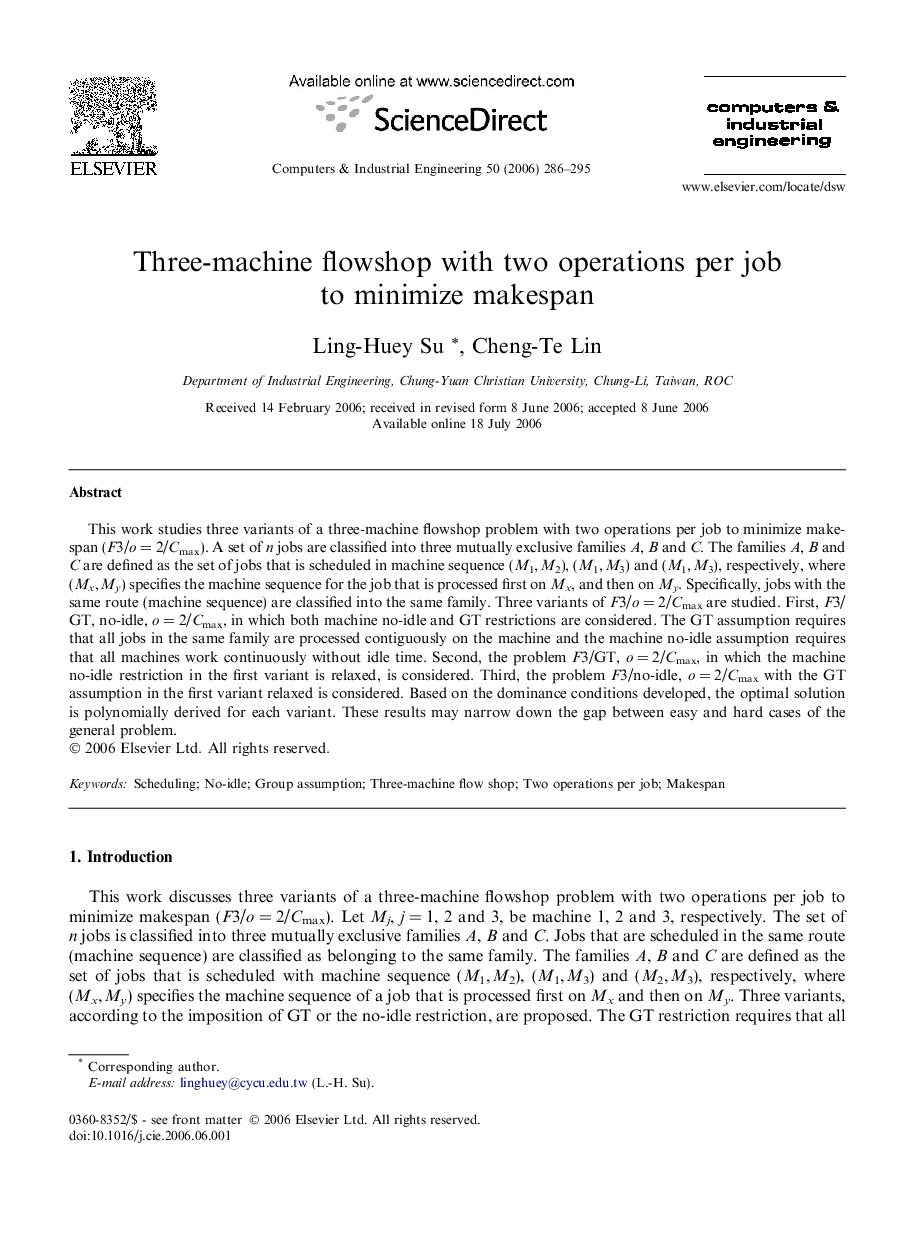| Article ID | Journal | Published Year | Pages | File Type |
|---|---|---|---|---|
| 1136044 | Computers & Industrial Engineering | 2006 | 10 Pages |
This work studies three variants of a three-machine flowshop problem with two operations per job to minimize makespan (F3/o = 2/Cmax). A set of n jobs are classified into three mutually exclusive families A, B and C. The families A, B and C are defined as the set of jobs that is scheduled in machine sequence (M1, M2), (M1, M3) and (M1, M3), respectively, where (Mx, My) specifies the machine sequence for the job that is processed first on Mx, and then on My. Specifically, jobs with the same route (machine sequence) are classified into the same family. Three variants of F3/o = 2/Cmax are studied. First, F3/GT, no-idle, o = 2/Cmax, in which both machine no-idle and GT restrictions are considered. The GT assumption requires that all jobs in the same family are processed contiguously on the machine and the machine no-idle assumption requires that all machines work continuously without idle time. Second, the problem F3/GT, o = 2/Cmax, in which the machine no-idle restriction in the first variant is relaxed, is considered. Third, the problem F3/no-idle, o = 2/Cmax with the GT assumption in the first variant relaxed is considered. Based on the dominance conditions developed, the optimal solution is polynomially derived for each variant. These results may narrow down the gap between easy and hard cases of the general problem.
